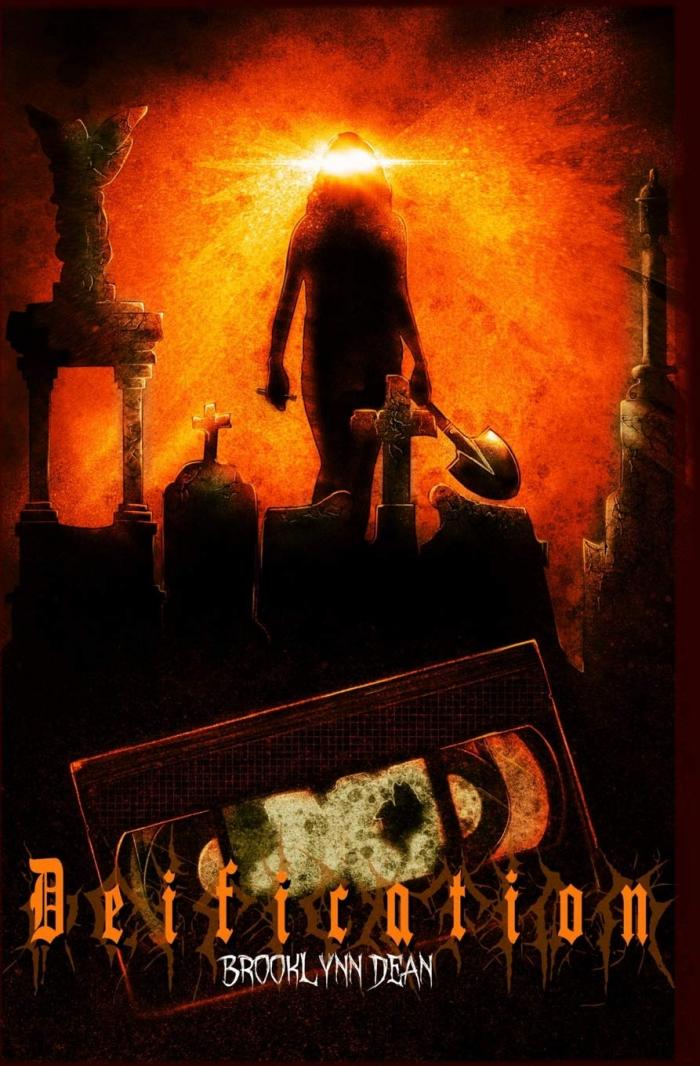Dean's Deification a Thought-Provoking, Transgressive Masterwork
FTC Statement: Reviewers are frequently provided by the publisher/production company with a copy of the material being reviewed.The opinions published are solely those of the respective reviewers and may not reflect the opinions of CriticalBlast.com or its management.
As an Amazon Associate, we earn from qualifying purchases. (This is a legal requirement, as apparently some sites advertise for Amazon for free. Yes, that's sarcasm.)

'Dies iræ! Dies illa; Solvet sæclum in favilla'
'The day of wrath, that day; will dissolve the world in ashes'
--Opening lines to Dies Irae (Day of Wrath), thirteenth-century Latin hymn
Our idea of the apocalypse, that period of final judgment when humanity's misdeeds are held to accountability and nations crumbles beneath worldwide cataclysms, has long cast a dark thrall on the collective unconscious, and from the fifth-century B.C. writings of Persian prophet Zoroaster to the ravenous civilization-devouring zombies of George Romero's seminal Living Dead films, the dire interpretations involving the time when time itself ends fascinates us.
Christian eschatology has, by far, inspired more works--both of serious religious contemplation and, in recent centuries, escapist fiction in a variety of genres--than any other apocalyptic scenario. The Revelation of St. John, with its trumpeting warrior angels and insidious demonic hordes rising from fiery pits, posits the ultimate fever dream battle between the forces of Good and Evil. But what if those hallowed texts depicting Good's eventual triumph were wrong?
This is the setting in which Deification, the latest short horror novel by author Brooklynn Dean, exists; in an unnamed American city in a hazy near-future, the paranormal barriers between Heaven and Earth have ruptured and the world approaches its expiration date: 'Now that the sky had opened up, it was vacant, a rotting shell of shot-up plaster full of old needles and semen.' The Rapture has occurred, angels--fallen and otherwise--freely walk the land, and through this shadowy vision career criminal Torrence embarks on a mission to fulfill the sinister machinations of Conrad, a cult leader whose failed childhood exorcism left him in command of vast demonic charisma. To complete her quest to see Conrad ascend to his rightful place as Hell's emissary Torrence has assembled a gang of chaos-loving fiends whose mission is to sacrifice seven individuals of pure virtue in order to open the infernal gates. Complicating matters is the fact that Torrence is engaged in an ongoing infatuation with a mysterious man named War, a person of such physical and moral perfection he may just be one of Heaven's disguised servants sent to stop her...
The true power in Deification lies in the unwavering intensity of Dean's prose. There’s an obvious, rapier-sharp intelligence on the loose--the plot is revealed in jigsaw-like fashion and each scene unfolds like an intricate ornamental tapestry, rich with background, detail and literate, philosophical thought; ideas that for some writers would constitute the entirety of a novel's storyline are here displayed with vigorous regularity, and the questions raised touch close to anyone who's had even a passing affection for horror growing up: what is the root of our cultural fetish for violence, and why exactly are we as an audience drawn to movies, images and stories that terrify and disturb us? Is it the vicarious rush of the experience, or the fact that we can, at least temporarily, identify with the monster, the madman, the Devil, and in doing so find a hidden source of strength?
Dean takes a risk in making Deification's antagonist the central figure of the book; Torrence is, by her very admission, not merely an anti-hero, but an Adversary, a villain intent on opening the nether-realms to satisfy Conrad's satanic destiny, and is unrepentant and remorseless about her actions throughout (In one instance Torrence's internal narrative boasts: 'If God could create a world in seven days, surely they could destroy someone’s life in seven minutes.'). Some would argue that such an approach alienates readers uncomfortable with placing themselves in the shoes of a ruthless, manipulative killer. Yet the superiority in Dean's execution is the complex layering within each of her characters: these aren't stock slashers from horror's Central Casting department--everyone, good and evil alike, are presented as multifaceted individuals with their own histories and internal conflicts--War struggles with the emotional, romantic and physical attraction he feels for Torrence, while Torrence, despite wanting to destroy War’s perfection, keeps him around because, on some level, she admires and finds his innocence (and his physicality) attractive. The members of Torrence's gang are likewise given concrete reasons grounded in abused, bullied pasts that motivate their later actions and succeeds in fostering sympathy for figures who, given the heinousness of their depicted acts, should have none. In this Dean proves that an audience may not merely be complacent consumers of horror, but are, somehow, accomplices in its creation by our very desire for it.
Despite the end-times backdrop, worries that Deification may be an apocalyptic Christian diatribe in fictional drag can be easily allayed; the contest between angels and demons is less like the forced pulpit-pushing Left Behind series than the fantasy/horror of the television show Supernatural, which mined similar religious ground for its own original entertainment purposes. Themes of self-empowerment are central tenets, and the horror aspects are fierce; the brutality of the actions in Chapter Two alone (where a helpless, everyday couple is held hostage and ritualistically killed) rival anything in Hostel, The Purge or The Strangers, and a direct literary lineage can be traced all the way back to A Clockwork Orange. Easter Eggs sprinkled throughout can be appreciated by any fan of the genre (Freddy, Jason, Michael and many more get proper shout-outs), and aside from an abrupt ending that may leave some feeling unsatisfied, Deification is a thought-provoking, transgressive mini-masterwork that will inspire as many musings as it does nightmares.
I give Deification a solid 4.5 (out of 5) on my Fang Scale.


